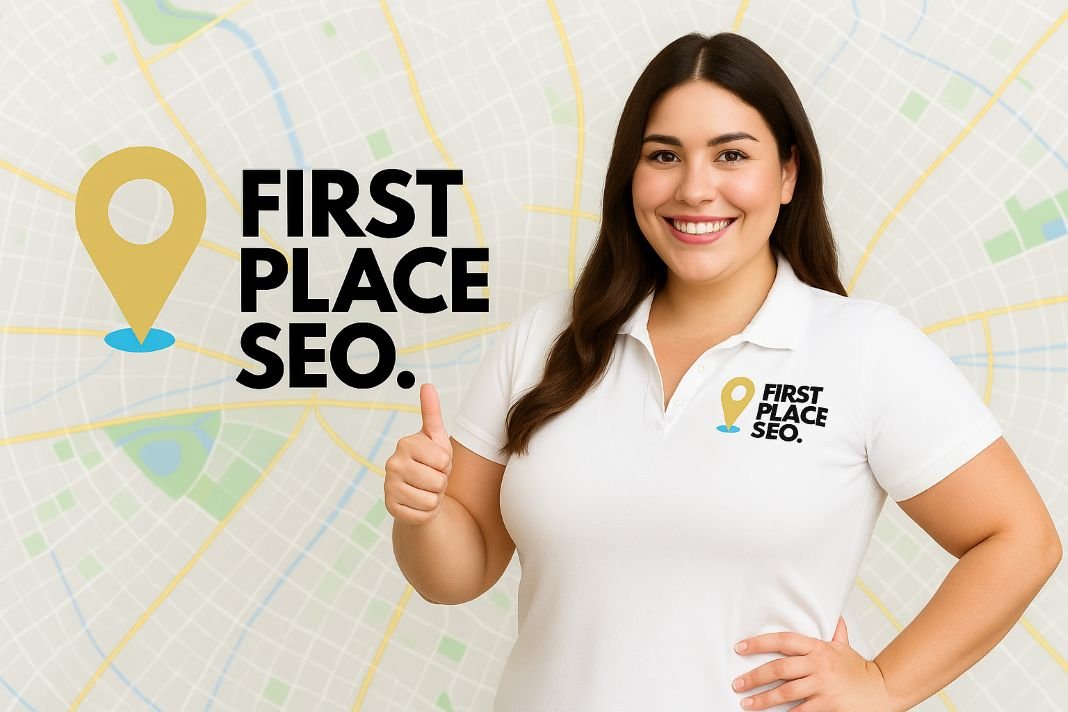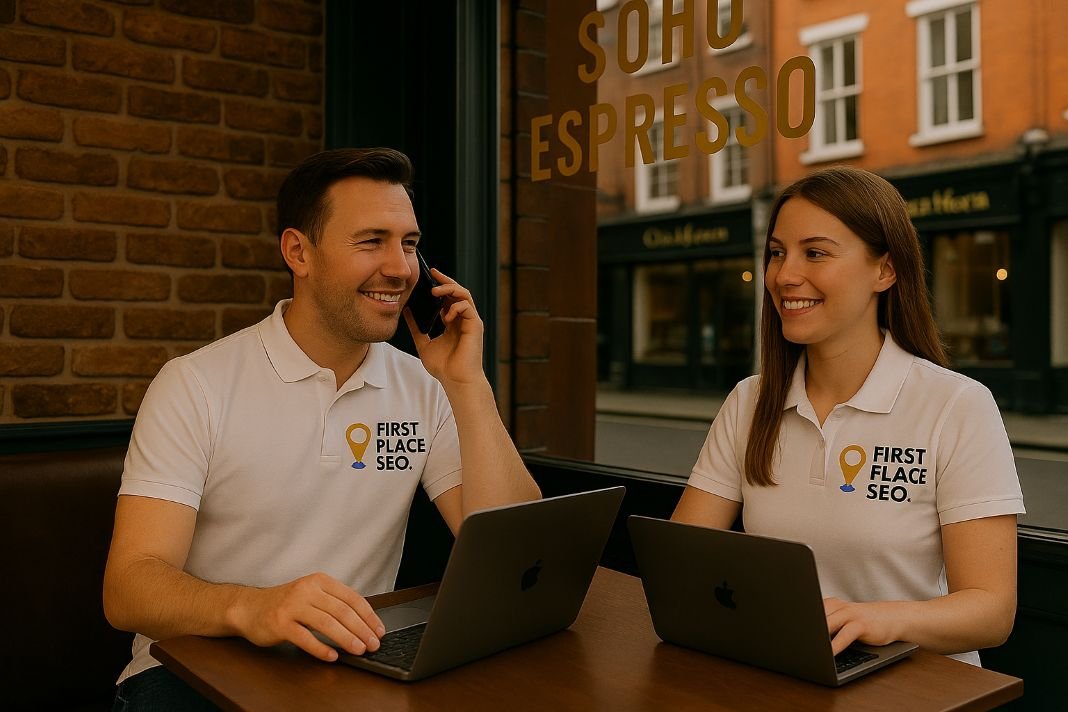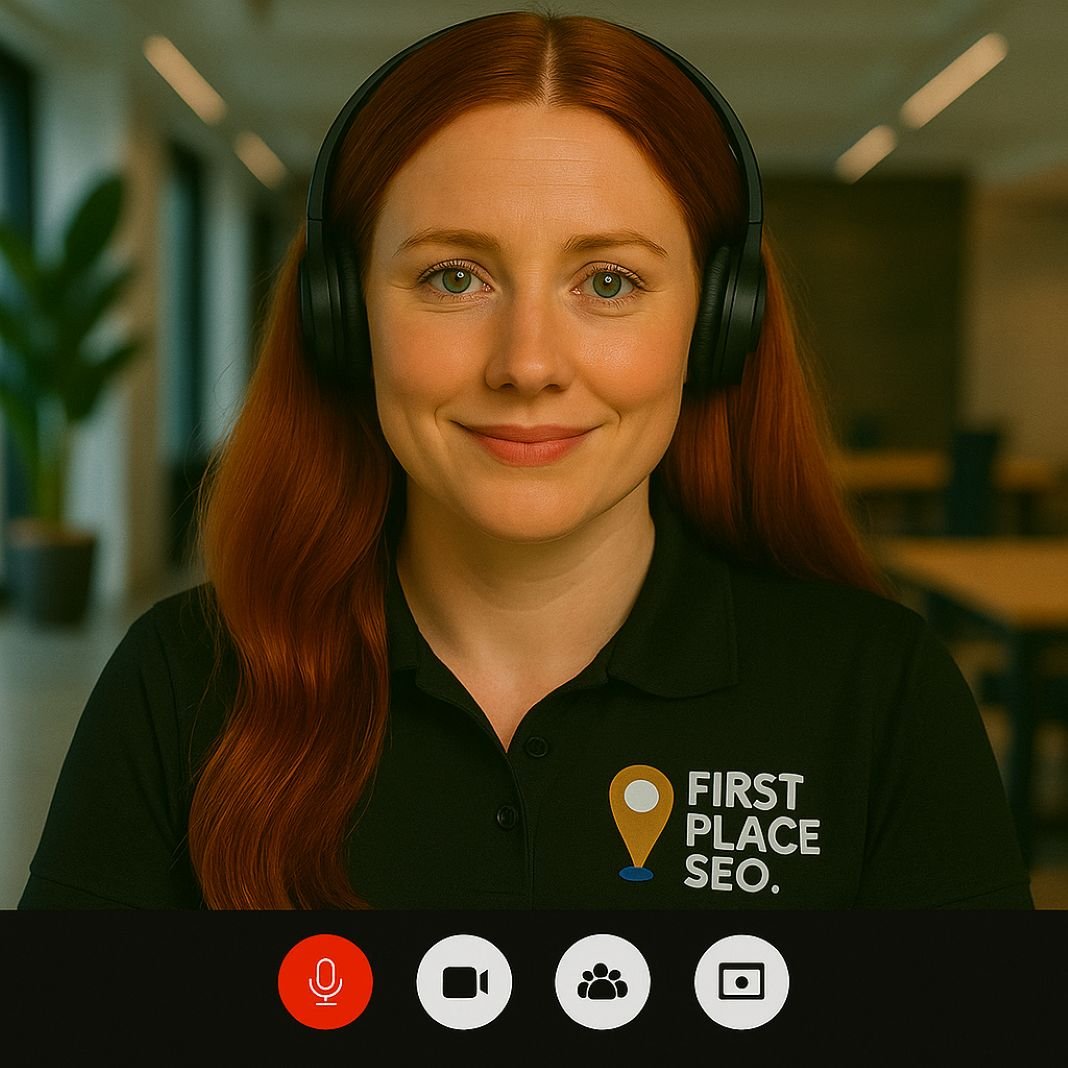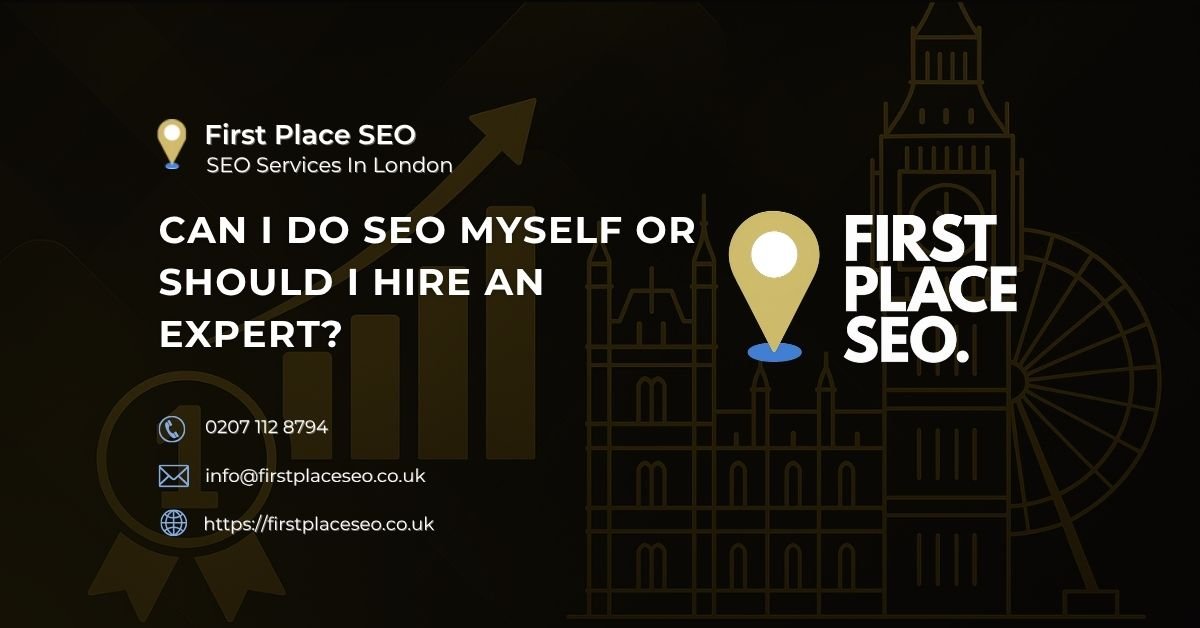Can I Do SEO Myself or Should I Hire an Expert?
Yes, you can handle SEO yourself, but whether it’s the best option for your business depends on how much time you can realistically give it, what your goals are, and how competitive your industry is. In this guide, we explain what doing SEO yourself involves, what you risk or gain from it, when professional input becomes helpful, and how to balance both.
Here's What We Have Covered In This Article
What Does Doing SEO Yourself Actually Involve?
What does DIY SEO actually mean?
If you’re thinking about managing your SEO on your own, you’ll be looking at tasks like keyword research, improving meta tags, managing internal linking, writing relevant page content, and earning backlinks from trusted sites. You will also be improving site quality for both users and search engines.
You’ll need to use tools such as Google Search Console, Google Analytics, Ahrefs, or SEMrush. These help you check how pages are indexed, identify crawl errors, analyse click through rates, and compare your site’s position in the search engine results pages. You’ll be reviewing your content against keyword intent, search demand, and user behaviour.
Keep in mind that most entry level SEO tools do not provide deep insights into backlink gaps, crawl depth, or log file data. Professional SEO software can uncover performance issues that free tools simply cannot access.
Pro Tip : Always compare your top pages in Google Search Console against your competitor’s best pages using tools like Ahrefs. That’s where your content gaps show.
Need Help With Technical SEO?
Save time and get it done right. Our team can audit your site and fix errors you didn’t know were holding you back.
What do you need to learn?
You’ll be learning how to write title tags, update meta descriptions, plan content based on keyword mapping, and address crawl budget limits. It also includes spotting canonical tag issues, duplicate content, or slow site speed affecting your Core Web Vitals scores.
Understanding search intent is key. Tools like SEMrush can show you gaps in your content, and free tools like Google Trends can help shape topic clusters. Indexing issues, internal redirects, and bounce rate problems are all part of what you’ll need to investigate.
Be prepared for a time investment. Learning technical SEO and how to use tools effectively may take between 100 and 300 hours depending on your experience level.
How long does it take to get results?
You’ll likely need three to six months before SEO begins to show results. For newer domains or websites with poor existing structure, it might take longer. Consistent work on content relevance, keyword strategy, and technical health is what moves results forward.
What Are the Real Benefits and Risks of Doing SEO Yourself?
Why do some people manage SEO on their own?
Cost is a deciding factor for many. Managing SEO internally means avoiding agency fees. You also get full control over your content calendar, internal link structure, and publishing schedule.
It gives you first-hand insights into what your audience is looking for and how they engage with your site. This can inform your wider digital marketing approach.
What can go wrong with DIY SEO?
The main problem is the time it takes to do everything correctly. Tasks like fixing indexing errors, diagnosing low Core Web Vitals scores, or setting up schema markup are not always straightforward.
Common mistakes include applying noindex tags incorrectly, misusing internal anchor text, over optimising with keywords, and relying on outdated SEO practices. Spammy backlinks can damage your domain authority, and poor page experience can increase bounce rate.
Misconfigurations often lead to crawling issues or diluted search intent. These problems usually go unnoticed without tools and knowledge. The lack of benchmark tracking also makes it hard to evaluate if your work is producing the right results.
Is skipping SEO better?
If SEO is ignored, your site will likely be invisible for relevant searches. That results in missed leads, lost traffic, and weaker revenue performance. Even small efforts, like keeping metadata updated or checking for broken links, can have a noticeable impact.
Pro Tip: If you’re stuck choosing keywords, group them by intent first—then decide which are informational, transactional or navigational.
When Should You Hire an SEO Expert Instead?
How do you know when it’s time to get help?
If your website is your main sales or lead platform, expert SEO can help you grow quicker and avoid setbacks. In competitive sectors, consultants can help you outperform similar sites with stronger backlink profiles or better technical setups.
Professionals can assess schema errors, fix robots.txt misconfigurations, and structure your XML sitemap to improve crawling. If your rankings drop after a Google algorithm update, they can trace the cause. Some agencies also help with performance benchmarking, conversion optimisation, and advanced keyword clustering.
What does a professional do differently from DIY SEO?
A consultant or SEO agency performs structured tasks such as:
Conducting technical audits with tools like Screaming Frog and Sitebulb
Reviewing backlink health and disavowing harmful links
Improving content alignment with E E A T principles
Optimising for Core Web Vitals and mobile usability
Managing crawl depth and index bloat
They track your SEO metrics using platforms like Google Looker Studio. This provides real-time insights into search visibility, performance trends, and keyword opportunities that are often missed with basic tools.
Be cautious though. Not all SEO packages are built around your actual needs. Some agencies sell prebuilt bundles that do not adjust to algorithm changes or reflect your competition. Custom audits are more valuable than one-size-fits-all solutions.
Can You Mix DIY SEO with Professional Help?
Is there a balanced way to approach SEO?
Yes, many UK businesses manage content and use external SEO specialists for support. You might handle blog updates and local SEO while a freelancer works on backlink outreach, schema testing, or performing structured data reviews.
You can also work with consultants who provide keyword clustering or build your SEO standard operating procedures. Others offer site performance reviews every few months and adjust your technical setup accordingly.
How does this setup help long term?
This combination works well when you have time to publish content but need help interpreting traffic drops, checking Core Web Vitals, or running an audit. You keep control of your voice and publishing while improving the parts that need technical insight.
It also helps you focus on user engagement, while technical SEO runs smoothly in the background. You avoid common traps like mismanaging redirects, neglecting sitemaps, or missing changes in structured markup.
Many small businesses fall into the trap of treating SEO as a one-off project. In reality, SEO requires regular updates, link audits, technical checks, and content freshness to stay competitive.
If you’re getting started, our step by step guide to small business SEO content planning includes tools and templates to help you set priorities and track progress.
Confused About Keyword Strategy?
Let us build a data-backed keyword map for your business in 5 days or less.
How Do You Make the Right SEO Choice for Your Business?
What factors help you decide?
Start by listing your priorities. Do you want to improve rankings fast or build slow and steady progress? Are you able to handle weekly SEO tasks like keyword research and image compression?
Also think about competitors. Are they ranking higher because they use schema, earn authoritative backlinks, or publish long form content that hits more user intent?
If you have time but limited budget, start DIY with clear goals and templates. If your traffic has stalled, bring in a consultant for a technical audit or content gap analysis. Expert-led campaigns often show measurable improvements in organic visibility, backlink quality, and load speed within 90 days.
What practical steps should you follow?
Use this simple decision list:
- List the SEO tools you currently use
- Note how much time you spend weekly on updates or analysis
- Identify gaps in your knowledge, such as canonical tagging or link audits
- Decide if you need help monthly, quarterly, or only for specific tasks
Hiring a consultant for a one off audit can flag issues with internal linking, site architecture, or slow load times that you might not spot alone. It gives you clarity on next steps.
Frequently Asked Questions
- How long before SEO shows results if I do it myself? You may notice some improvements in three months, especially if your site is already live and indexed. For more competitive keywords or new websites, allow six to twelve months.
- Can I rely on SEO plugins to handle everything? No. Plugins like Yoast help with metadata and readability, but they do not fix schema errors, build backlinks, or replace strategic keyword mapping.
- What is the average cost of SEO help in the UK? A freelancer might charge between £400 and £1500 per month. Larger agencies offering full service can charge between £1200 and £8000 depending on the complexity of your goals.
- Where can I learn SEO for free? Free resources include Google Search Central, Moz Beginner’s Guide, Ahrefs YouTube tutorials, and HubSpot Academy. These cover everything from keyword strategy to site structure.
- What’s the best hybrid SEO model for small businesses? Hire a professional to set up your technical foundation. Then handle regular blog updates, page content, and local listings internally using their roadmap.





